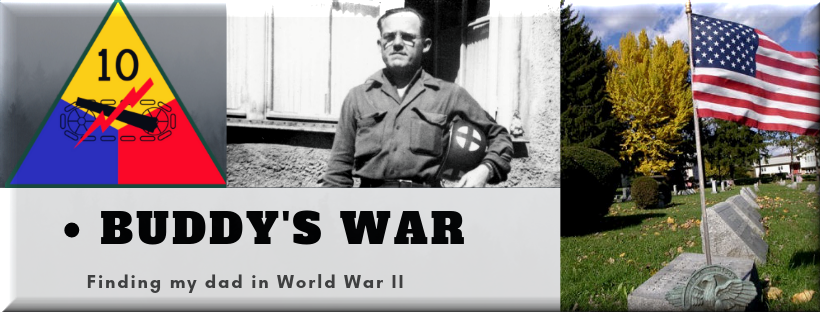◆ November 28, 1943
◆ Seventy-five years ago today:
The Tehran Conference was held. President Roosevelt and Prime Minister Churchill met with Soviet leader Joseph Stalin in Iran to discuss war strategy.~~~~~~~~~~~~~~~~~~~
In the early 1940s the United States faced a seemingly daunting task. Build a world-class military from next to nothing. Beginning with the first “peace time draft” at the end of 1940 and then expanding almost exponentially after Pearl Harbor in December 1941, the US Armed Forces underwent a transformation perhaps unprecedented in history. From top to bottom the military needed to become an unbeatable force. The reason was simple and now, almost 80 years later, almost overlooked. By Pearl Harbor, the United States was all that stood between world peace and the demolition of everything Western Civilization stood for! One of those who answered the call in 1941 was a surgeon names Brendan Phibbs. Over 45 years later he wrote a memoir of the time, The Other Side of Time: A Combat Surgeon in World War II. I came across it in my research this past summer and was blown away by its power. It was another piece of information about what my Dad was facing. In the early chapters of the book he reflects on the world at the beginning of World War II.
It’s hard today to remember the glow that bathed our armed forces as the country hitched up its weapons for the Second World War. It was a springtime, a virginal encounter when a generation distracted and sometimes desperate could turn happy and relieved to the ancient simple virtues…. Because sometime during the twenties and thirties the United States Army had disappeared. While the rest of the world rumbled and flamed through a tortured decade, [Old pictures of the US Army] certainly didn’t seem any match for the well-drilled hordes that thumped and banged their way across the newsreel screens, flaunting the terrors of Germany, Russia, Italy, and Japan…. Out of the radiant past came the army we have forgotten.Help was needed. The pictures from Europe and the Pacific were horrendous. How could the United States compete with that kind of military power that was at once brutal, overwhelming, and in control of a great deal of the world?
Maybe we should never use total black or clear white to symbolize the capering of the human animal, but in 1942 we … knew we were marching out against the closest approximation of total darkness the planet had ever known.
We were a reenactment of American history, from Louisburg to Chateau-Thierry, a levee en masse around a skeleton of barely competent professional soldiers, when somehow, always, the carpenters and salesmen and tavern keepers and foundry workers got themselves sorted into ranks, most of them to become adequate and some of them to become heroes…. It was going to be our army, we were prepared to love it, and I suppose we would have felt even more strongly if we had known what we really were: the last American crusade, an army marching out with the cheers and blessings of a whole people, to save our country and the world from black, unrelieved villainy.
We were marching out to become the last people’s army in the history of the United States of America.
— Brendan Phibbs, The Other Side of Time: A Combat Surgeon in World War II. 1987.
As we move into 2019 (and 1944) I will expand on some of the ways the United States accomplished this miraculous task. To the point of this series I also did some digging into the needs for medical personnel as well as training the medics in combat. On Quora I found some of the history of the process:
The Army, on the other hand, primarily managed their combat medic training pipeline by earmarking medic candidates from the very first day they joined the Army. Medics went through a combined basic training, infantry class, and medics school, taught continuously for the student. Prior to the war, Army Medic training (combined with basic training) was 13 weeks. In the 4th quarter of 1941, the Army truncated the school to 11 weeks. Since 1942 saw the enlistment of millions & millions of men, Army Basic/Medic school was cut to just eight weeks for ten months. November and December 1942 saw the program extended back to 11 weeks; May to August 1943 increased the class to 12 weeks. From August 1943 to war's end, combined basic training/medic school stabilized at 17 weeks. Whatever curriculum was cut short, was picked-up by field training detachments after the apprentice medic arrived at his first duty station. (-Link)From a U.S. Army history of the growth of the medical corps in World War II came this information:
Despite the country’s desire to avoid involvement in another European war, the US Army had been gradually expanding in the years before Pearl Harbor, from 191,450 troops when Hitler invaded Poland in September 1939 to about 1.5 million when the Japanese attacked on December 7, 1941. The National Guard had been mobilized in 1940, the same year Congress approved a peacetime draft. Guard units faced several obstacles, however. Industry was not producing enough military equipment, and troops had to train with limited quantities of outdated items. Medical training itself was a bottleneck; for instance, not enough brick-and-mortar hospitals existed to provide full training for all newly enlisted men, and courses had to be shortened to ensure at least some hands-on training for all enlistees. (-Link)In short, there was a lot going on in those years- and by the end of 1943 U.S. Military personnel were fighting and dying in many areas.
They had only just begun.


